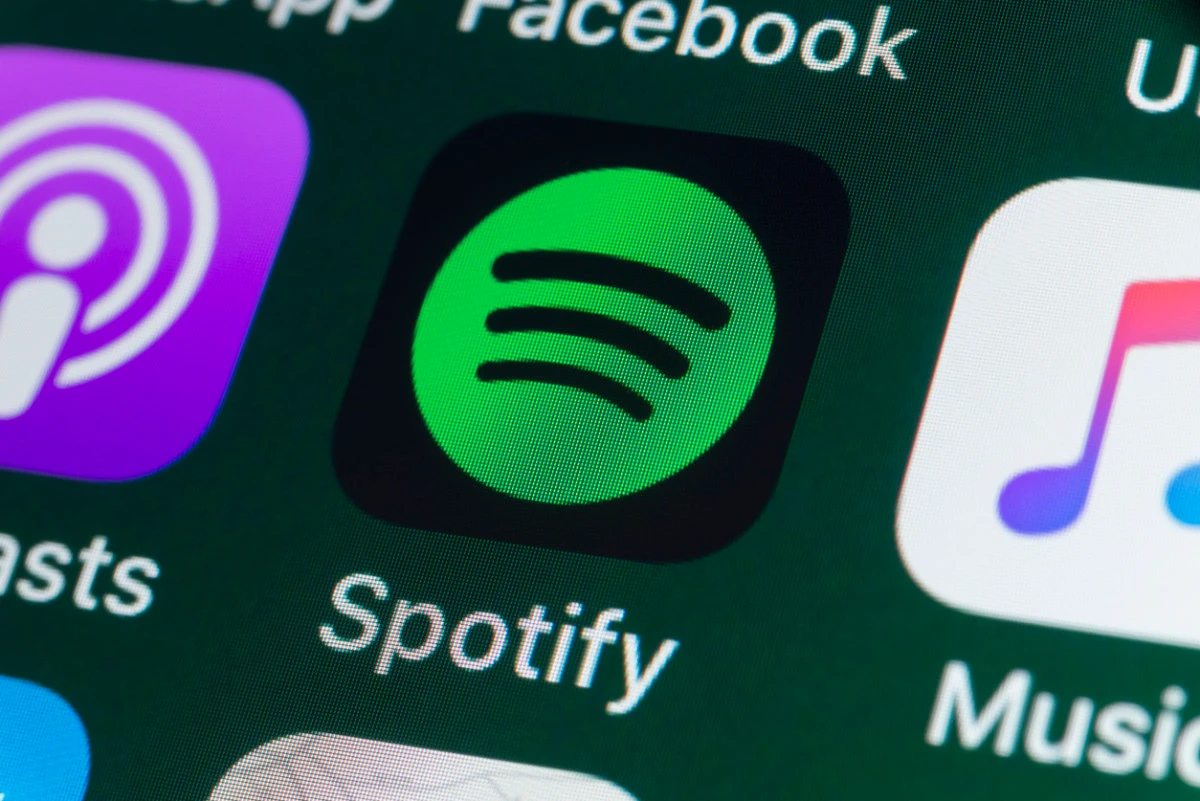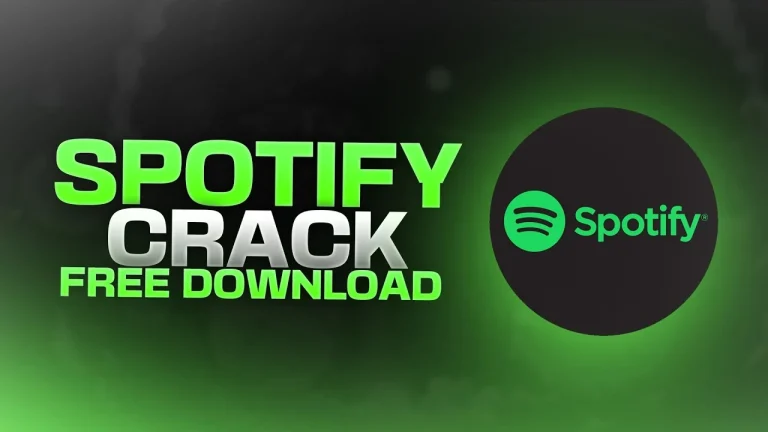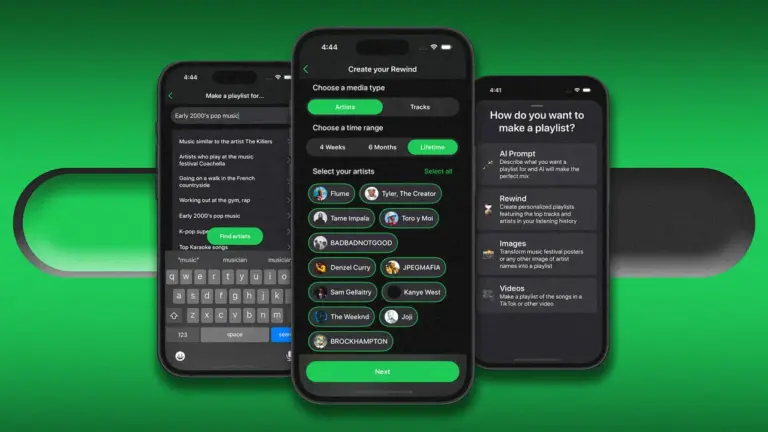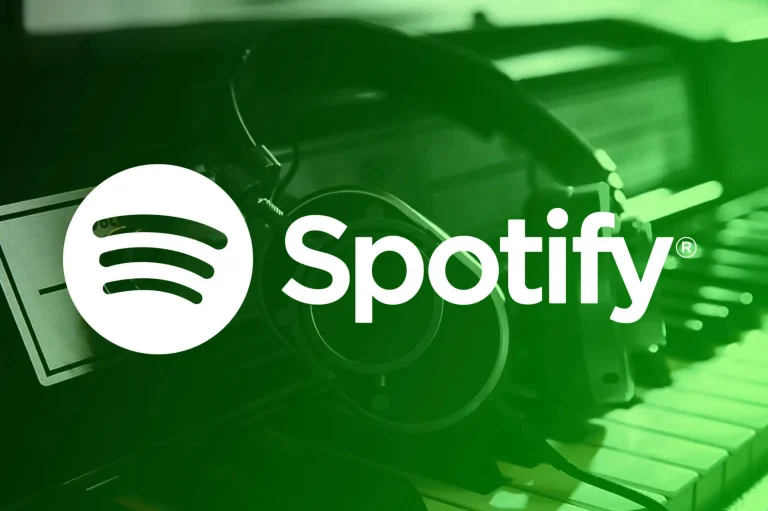Spotify Premium Alternatives, 10 Best Alternatives Of Spotify
Spotify Premium is a paid version of Spotify that offers ad-free music streaming, offline listening, and higher audio quality.
Are you looking for alternatives to Spotify Premium? While Spotify is a popular choice for music streaming, several other platforms offer similar features and sometimes even unique advantages. Suppose you want high-quality audio, expansive music libraries, exclusive content, or cheap pricing options. A Spotify alternative suits your preferences. This article will explore some of the top choices for Spotify Premium, highlighting its key features and benefits.
Alternatives Spotify
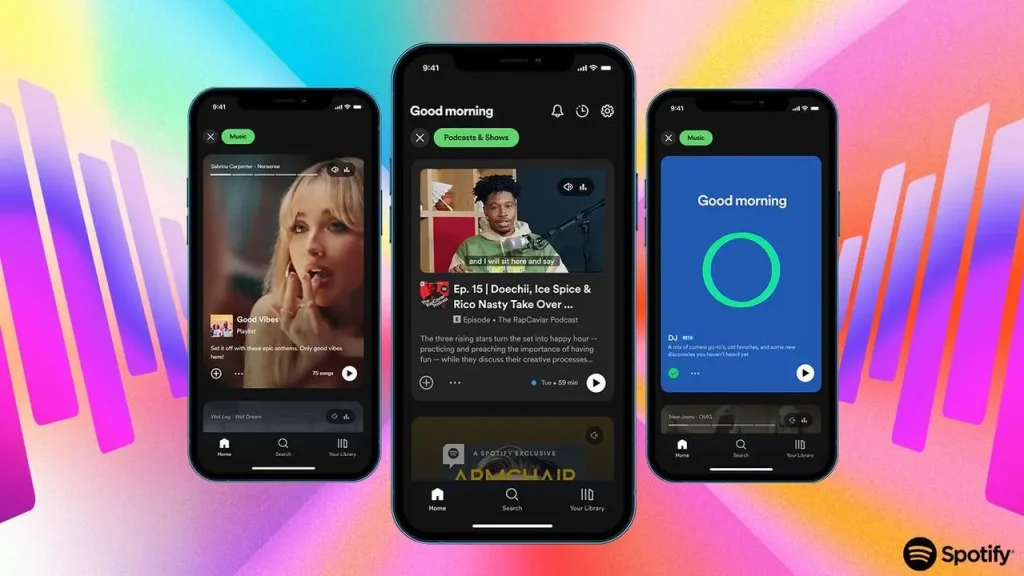
Even though Spotify is very popular, there are other options for listening to music you might like. If you are interested in what else exists, here is a brief look at alternatives. But let’s start with Spotify first to cover all the bases.
YouTube Music
YouTube Music offers a considerable advantage over Spotify. Apart from its wide range of music, it includes millions of videos and operates a brilliant YouTube search engine. You can type or say a word related to a song or its lyrics, and you will likely find it. Its interface is user-friendly and easy to navigate, featuring various playlists that match your mood on the main page. Whether you need more energy, want to focus, relax, or boost your spirits, you can use these playlists instead of searching for specific genres or songs.
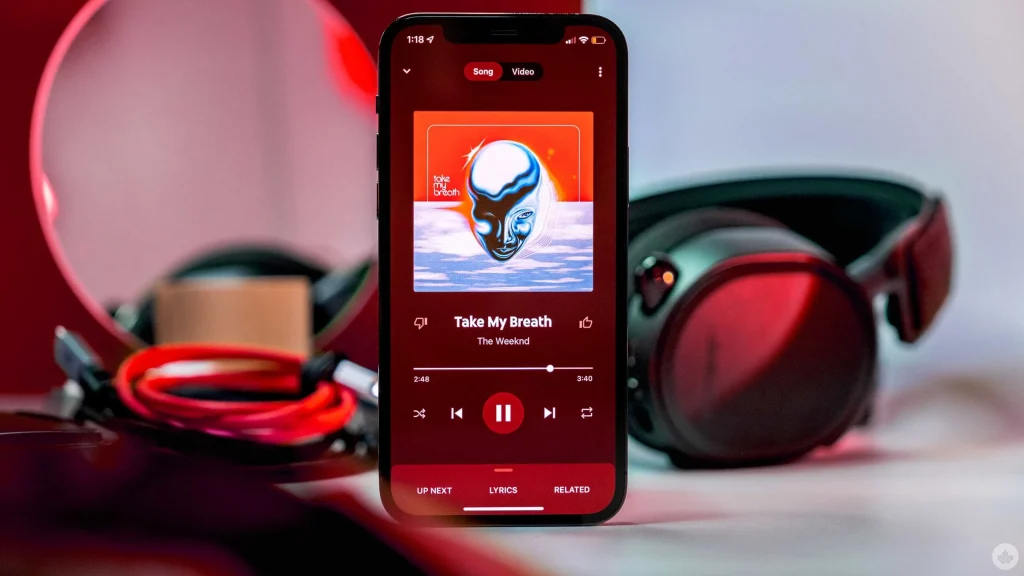
You can listen to your music offline and watch videos without WiFi or mobile data. Also, you can play YouTube videos in the background and use other apps without interrupting the music until you stop it. YouTube Music Premium starts at USD 10.
Pros:
Cons:
Deezer
Deezer is an excellent alternative to Spotify, offering a user experience similar to Spotify but with about 70 million songs available. It has about 30 million more than its competitors. It also features a tool identical to Shazam called SongCatcher, which helps you identify songs playing around you.
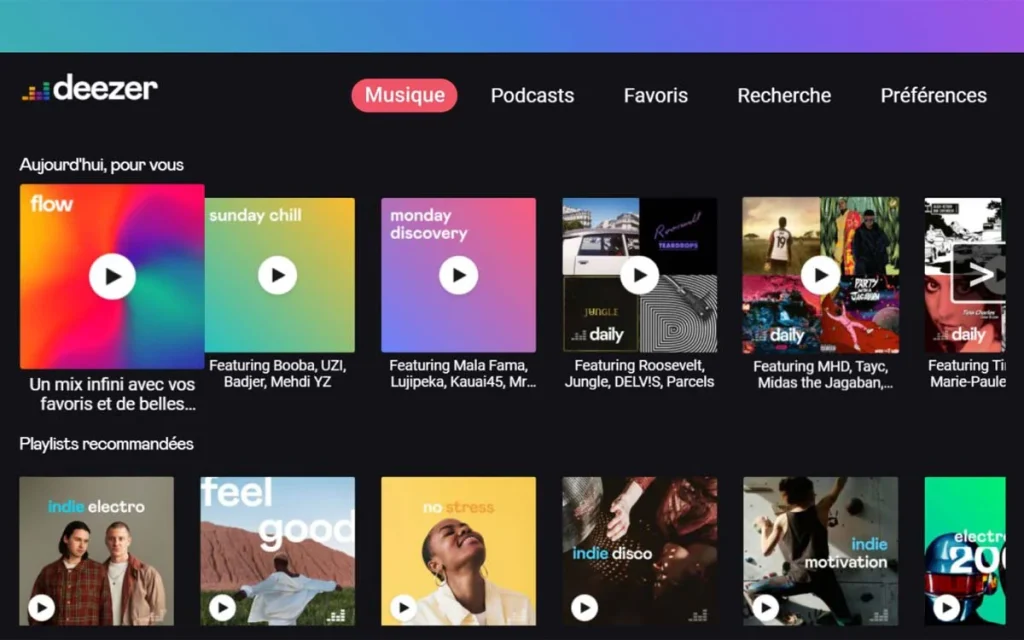
Another unique feature is Flow, which provides personalized recommendations and reminds you of songs you may have forgotten, allowing you to enjoy hours of music.
The free version of Deezer is similar to Spotify but with fewer ads between songs. You can upgrade to the premium version starting from USD 10.
Pros:
Cons:
Pandora
Pandora is one of the pioneers in music services, known for its personalized playlists based on listener preferences. It was founded as a customer music service in 2005 and has undergone several changes. Initially, users of the free service were limited to 40 hours of streaming per month. Now, it offers one free and two paid services, providing music and podcasts. Pandora is currently owned by SiriusXM.
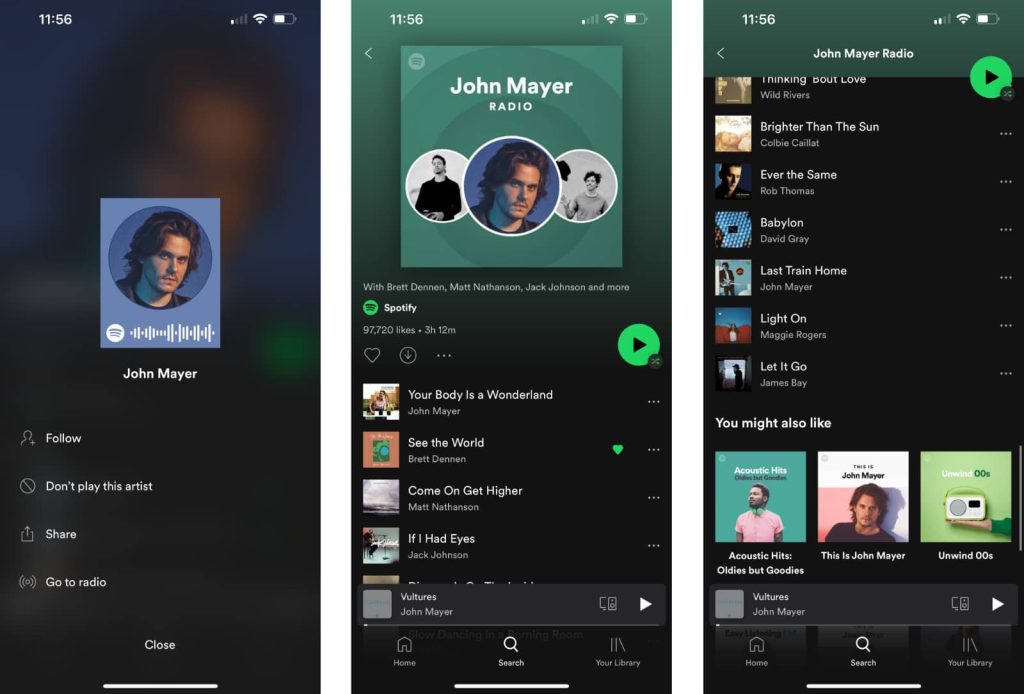
Pros:
Cons:
Apple Music
Apple Music boasts a record of just over 50 million songs, giving it an edge over Spotify in light volume. Imagine you are already part of the Apple ecosystem. In that case, you will find Apple Music especially attractive because its seamless integration with the working system stops the need for third-party apps. The platform offers a well-balanced user interface design and options such as suggested lists, hits, genres, and personalized playlists. Users can also follow artists and entertain with songs by reaching out to and remarking on them, offering a significant advantage over Spotify.
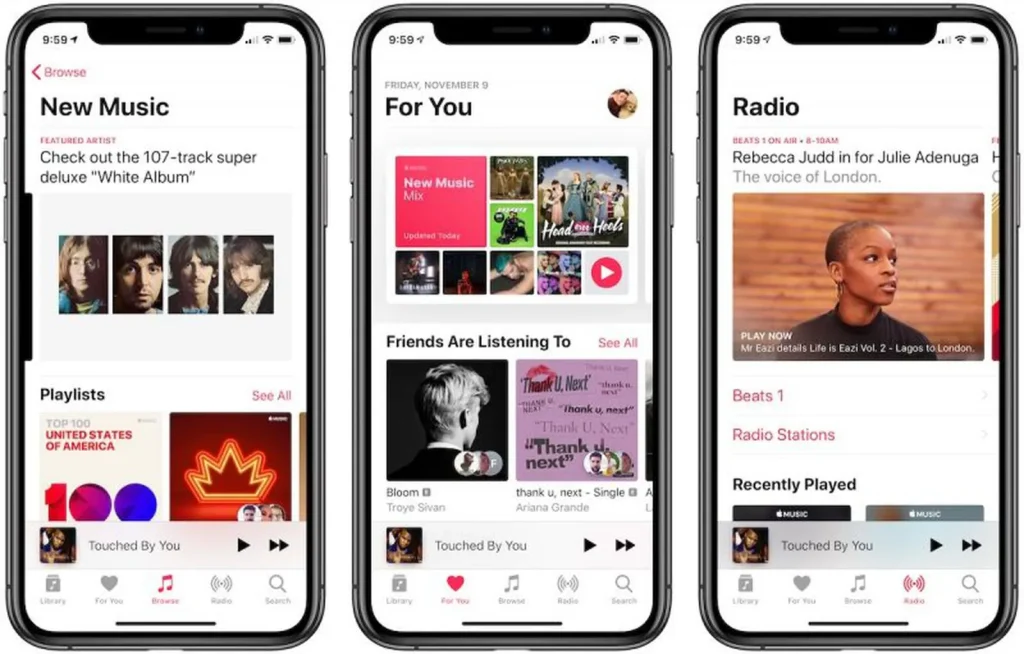
You can access the service not only on MacOS or iOS devices but also on Android and Windows. It must be noted that it does not offer a free option with ads. You must subscribe to a membership to use the service, which costs USD 10 per month.
Pros:
Cons:
SoundCloud
SoundCloud is famous for its expansive music and audio collection, boasting over 200 million files, including songs and podcasts. It is trendy among indie artists, making it a go-to platform for discovering new talent, particularly for electronic music fans. One drawback of SoundCloud is the limited presence of well-known, established artists.
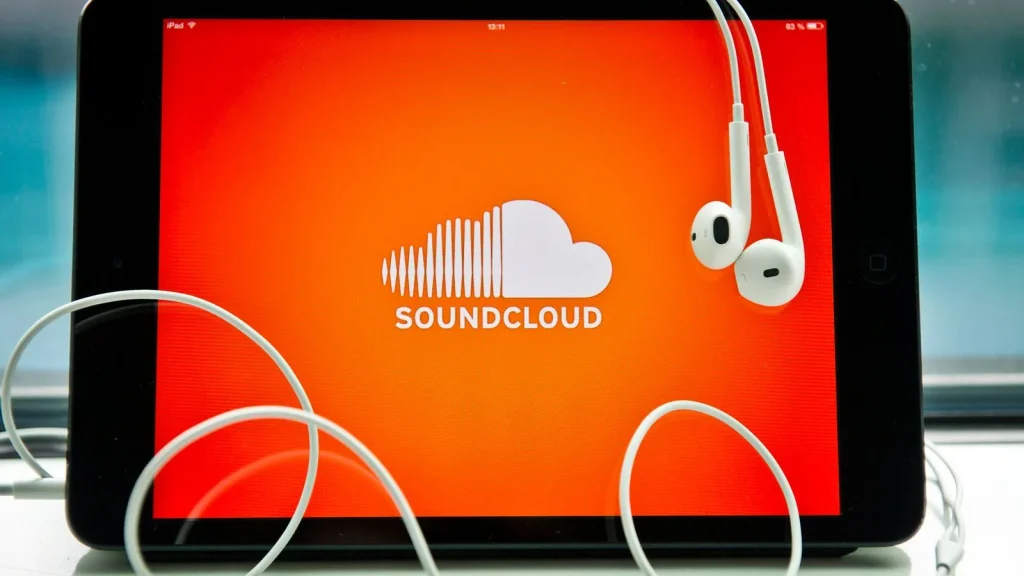
Soundcloud also functions as a music social network, allowing users to share, like, and comment on access, highlight parts of songs, create playlists and podcasts, and follow their favorite artists. This range of features means you can discover a fantastic variety of content on Spotify. Soundcloud offers a free version supported by ads, but you can opt for one of their premium memberships starting from as little as USD 5 per month.
Pros:
Cons:
Tidal
Tidal is an excellent alternative to Spotify, specifically for those prioritizing audio quality. It offers standard sound options and HiFi quality for USD 19 per month. Tidal supports official videos across a significant portion of its catalog. One crucial benefit is importing playlists from other platforms, allowing users to transition to Tidal without losing their music. Users often gain access to exclusive events with artists and can purchase tickets for shows before they are available to the general public.
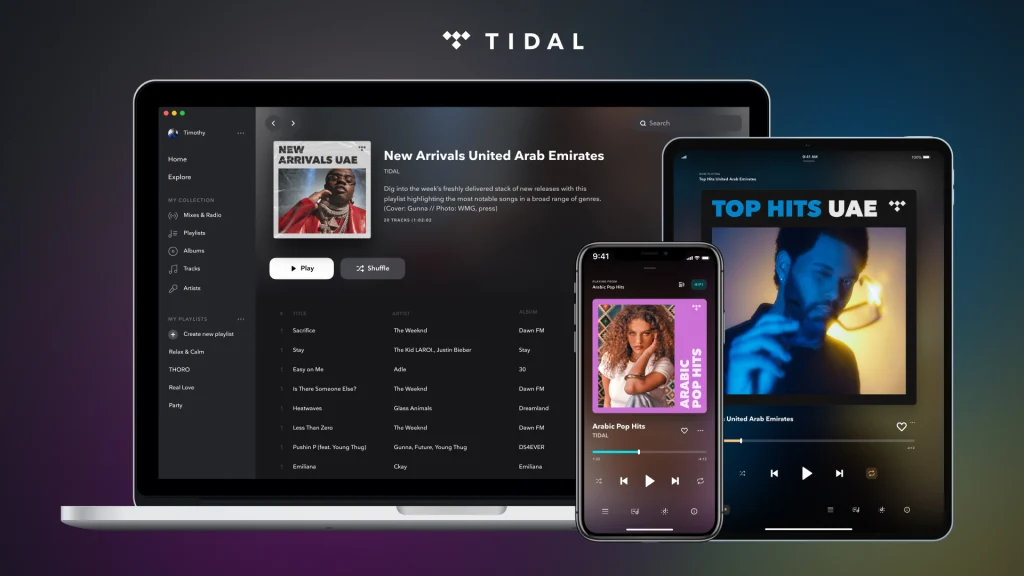
Pros:
Cons:
Amazon Music
Amazon music is among the most famous music services, alongside Apple Music and Google’s YouTube Music, and it is separated from Spotify. It offers three levels of music subscriptions, each giving access to more songs and higher-quality audio as you move up the tiers. Amazon Music allows users to listen to podcasts.
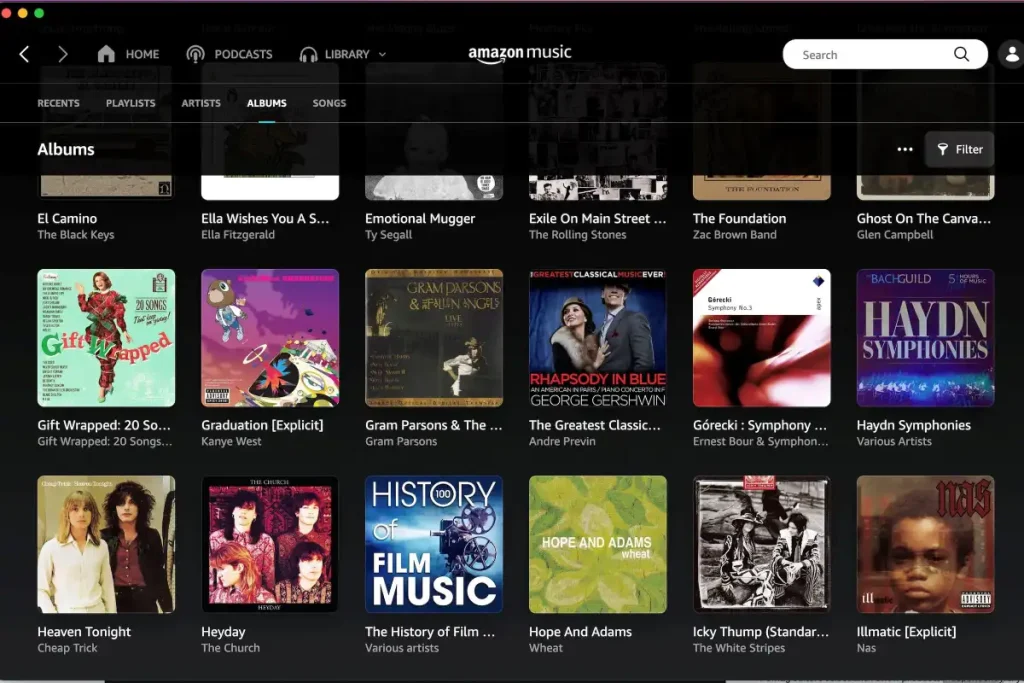
Amazon Music Free will enable you to access the service’s playlists, radio stations, and podcasts. However, the audio quality is limited to SD, and you will discover ads. Similarly, you would not be able to select specific songs or albums.
Amazon Music Prime is free to members of its Prime shopping, video, and other services. However, it is not available to family members, as it is one of the few features yet to be shared. While it offers SD quality only, it is ad-free and allows you to select specific songs.
Pros:
Cons:
Bandcamp
Bandcamp is perfect for music fans who enjoy finding new artists. It is indie-focused. You would not find big names here, which makes it ideal to complete other services. However, Bandcamp features lesser-known artists and is completely free to explore. You can pay for albums, with pre-orders easily arranged, and even access live shows through the platform. While its interface is visually attractive, it may be more complex than other options.
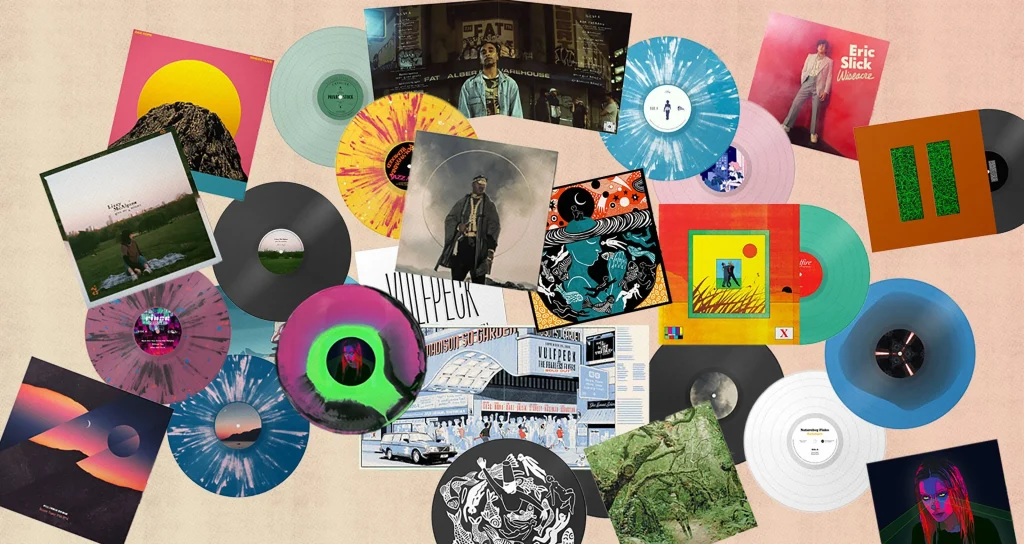
Pros:
Cons:
Qobuz
Like Apple Music and Tidal, Qobuz does not offer a free service. Like Tidal, it focuses on providing high-quality music, including hi-res audio. Qobuz has partnered with supply manufacturers like Bang & Olufsen and Sonos. In addition to music, it gives album reviews and artist bios. Qobuz offers two plans, each available in Solo (one account), Duo (two accounts at the same address), and Family (six accounts per household) versions.
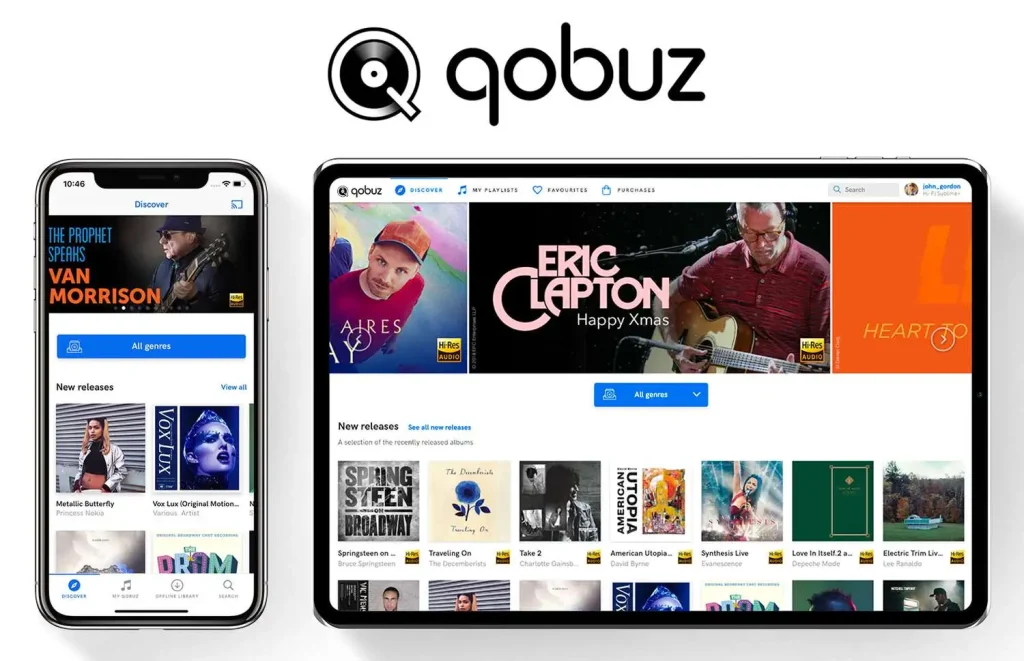
Studio offers downloadable music along with original editorial content like playlists and articles. The Solo plan costs $10.83 per month, the Duo plan costs $14.99, and the Family plan costs $17.99.
Pros:
Cons:
iHeartRadio
In terms of personalized music listening, iHeartRadio can contend with Spotify. Like Spotify, it offers a wide range of music, radio, and podcasts. iHeartRadio stands out with thousands of live radio stations and expansive customization options, giving it an advantage over Spotify for radio listening.
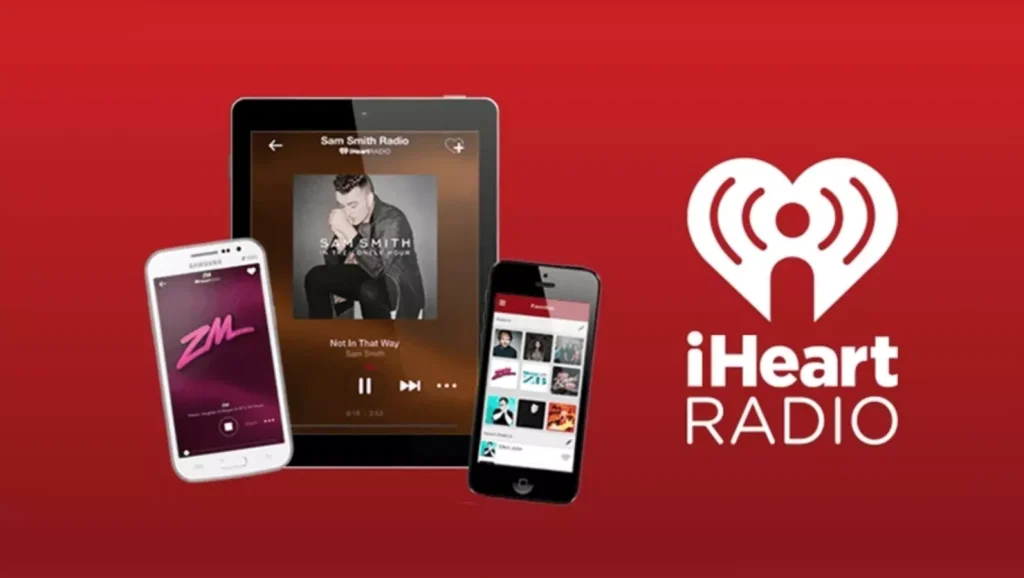
iHeartRadio is equally vital in the empire of podcasts. It hosts podcasts from popular channels such as ESPN, NPR, Gimlet, How Stuff Works, TED, Wondery, and Big Money Players Network. While its music selection might not match Spotify’s extensive library, you will still find the quantity to enjoy without much to complain about.
Pros:
Cons:
CONCLUSION
In music streaming, minor differences can make providers more attractive to some users than others. SoundCloud is a solid option if you seek a practical, cost-effective alternative to Spotify. Apple Music could also be worth considering as an Apple user. While smaller, Deezer offers a complete package with hi-fi sound, podcasts, radio, and more.
Additionally, Tidal could be a good choice if you seek Hi-Res music. Its highly successful app and practical algorithm provide a seamless experience with a stable stream of new recommended content. Choosing the best music streaming platform is subjective. Finally, the most suitable Spotify alternative depends on your needs and preferences.

